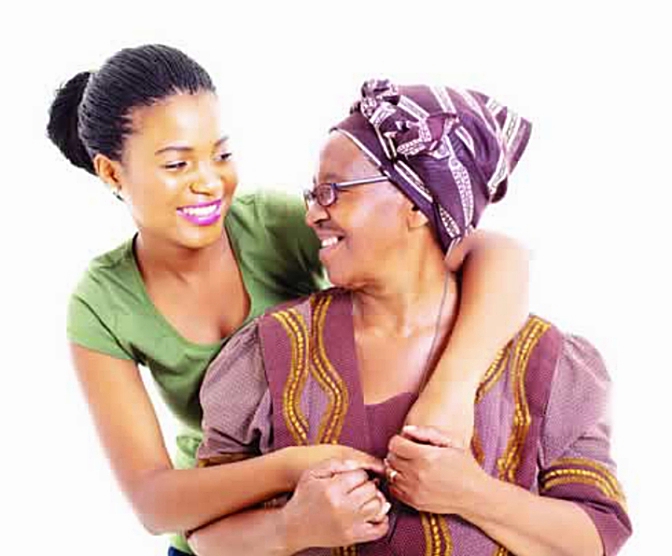
Mother’s Day 2024: Nigerian mothers deserve better care
IN the heart of Nigeria, where the sun’s embrace is as warm as a mother’s love, the challenges of motherhood are deeply woven into the fabric of daily life. There is probably no better instantiation of this ingrained dilemma confronting mothers than a recent incident that occurred in Ogui, Enugu State.
On March 2, a mother of three, shortlyafter abandoning her children at a bus terminal on Ogui Road by Osisatech Roundabout in Enugu, capital of thestate, stripped herself naked, and absconded.The story pierced the peace of society, a very sobering dampener and prelude to the 2024 Mother’s Day celebration today.

The state Police Public Relations Officer, Daniel Ndukwe, stated that the Divisional Police Officers of Central Police Station and Ogui Police Division received distress calls from concerned persons alleging“the woman stripped herself naked due to a mental disorder before running off to an unknown destination.The DPOs and their teams immediately moved to the scene, where they found and took the children to Ogui Police Station and commenced investigations to locate their mother.”

Media reports stated that the wife of the governor, Nkechinyere Mbah, had visited the station and offered scholarships and welfare support for all three children aged six, three, and two, who have been handed over to the Ministry of Gender Affairs and Social Development.

The woman’s husband reportedlytold the police that his yet-to-be-seen wife recently started displaying strange behaviours, which could suggest signs of mental health issues.
Like the mother of three who fled, mothers across Nigeria are navigating a complex tapestry of joy and sorrow, hope and fear, all while balancing the weight of tradition and modernity.
These days, the groaning is loud among Nigerian mothers;indeed, some are even oblivious of today’s celebration because of the unprecedented cost-of-living crisis. Amidst the economic hardship bedevilling the country, many mothers are made to face internal struggles and are also expected to prioritise their families above all else, often at the expense of their own well-being and personal aspirations.
Consequently, some mothers resort to selling their children.
Last month, a mother of 11 children in Anambra State, Chinyere Chukwu, was apprehended by security agents when she attempted to sell two of her sons for the sum of N1.8 million. She blamed her indiscretion on the “economic hardship of the country.”
In May last year, a 26-year-old mother in Lagos State, Maria Ahmadu, was arrested by the police for attempting to sell her nine-month-old baby. A month earlier, a 33-year-old woman, Olaide Adekunle, was nabbed for selling her 18-month-old baby to settle a debt in Ogun State.
Aside from the mind-numbing economic hardship, another great challenge faced by mothers in Nigeria is the high maternal mortality rate. According to the World Health Organisation, Nigeria has one of the highest maternal mortality rates in the world, with approximately 512 deaths per 100,000 live births.
A WHO report, titled, ‘Improving maternal and newborn health and survival and reducing stillbirth: Progress Report 2023’ shows that Nigeria is only behind India in the latest ranking. The report noted that in 2020, 788 women and children died “per thousand” in India and 540 women and children “per thousand” died in Nigeria. In the same year, India accounted for 17 per cent of global maternal and neonatal deaths and stillbirths, while Nigeria accounted for 12 per cent.
The United Nations Economic Commission for Africa records that one in seven global maternal deaths occurs in Nigeria, which represents more than 50,000 women dying per year in the country. Health experts, however, said about 95 per cent of deaths during childbirth are preventable.
UNICEF estimates that Nigeria’s 40 million women of childbearing age (between 15 and 49 years of age) suffer a disproportionally high level of health issues surrounding birth. While the country boasts 2.4 per cent of the world’s population, it currently contributes 10 per cent of global deaths for pregnant mothers.
These alarming statistics are a stark reminder of the harsh realities that many Nigerian mothers face when it comes to accessing quality healthcare.According to the UN Sustainable Development Goals, the global target for maternal mortality is 70 deaths per 100,000 live births.
Another challenge is the prevalence of child marriage, which robs many young girls of their childhood and forces them into early motherhood. UNICEF says that Nigeria has one of the highest rates of child marriage in the world, with 44 per cent of girls married before the age of 18. This not only puts their health at risk but also perpetuates a cycle of poverty and illiteracy.
Nigeria equally lags in the global push to encourage breastfeeding. Its coverage rate of 29 per cent is far less than the minimum 60 per cent recommended by UNICEF and the WHO. The working-class category comprises many nursing mothers, which contributes to the sub-optimal score.
According to the Federal Ministry of Health, just 9.0 per cent of companies have a policy that encourages breastfeeding among employees and creates an atmosphere that makes it possible for nursing mothers to breastfeed their children. Tragically, the national initiative to promote breastfeeding is not catching on.
Mothers working in the private sector are entitled to 12 weeks of paid maternity leave under the Labour Act and if they have been employed by their current company for six months or more, they are eligible for half pay. Sadly, not all for-profit businesses follow these guidelines. This necessitates laws establishing basic requirements for all corporate bodies.
However, despite these challenges, Nigerian mothers are resilient and resourceful; they find strength in their communities and draw on their deep-rooted values of love, sacrifice, and perseverance to navigate the complexities of motherhood with grace and dignity.
The challenges of motherhood in Nigeria are multifaceted and deeply ingrained in the fabric of society. However, Nigerian mothers continue to face these challenges with courage and resilience, embodying the true essence of motherhood – unconditional love and unwavering strength.
Therefore, there is a need for the government, relevant stakeholders, faith organisations, corporate bodies, and individuals to work collectively towards improving the social welfare of mothers in the country. There is also an urgent need for primary healthcare centres in local government areas to be adequately equipped to provide quality healthcare to expectant and nursing mothers.
Federal and state governments should prioritise the well-being of mothers in the policies they enact and the effect of economic decisions they make. The Child Rights Act should be domesticated in all 36 states to guarantee the education of the girl-child and protect them from sexual exploitation in the name of child marriage.
I’m really impressed along with your writing abilities and also with the format on your blog. Is this a paid topic or did you modify it your self? Anyway stay up the nice high quality writing, it is rare to see a nice blog like this one today!